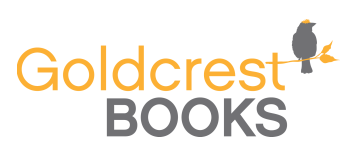Book Rights – What are they?
Before I start this post today, I must emphasise that I am not a lawyer so if you are considering selling rights to your book or have a contract from a publisher then you should seek proper legal advice to make sure you are getting a good deal and not giving away more than you intended.
When an author enters into a deal with a traditional publisher all the rights to the author’s book transfer to the publisher unless the author has agreed that certain rights can be retained. The two main types are moral and transferable rights which the author can pass on to a publisher or other third parties.
Moral rights
The moral right of the author does not usually transfer to the publisher. Moral rights didn’t become law in the UK until 1988 and consist of the following rights:
- Paternity – the right to be identified as the author of your work
- Integrity – the right to object to your work being changed or misinterpreted in a way that damages your reputation
- Prevention of false attribution – the right to object to someone pretending to be the author of your work, for example, or someone making changes to your work but still claiming that you are the author of this ‘updated’ or adapted version
- Privacy – this relates to photos, videos and film
These four moral rights come under the Copyright, Designs and Patents Act 1988. These rights must be ‘asserted’ and an author does this by including a paragraph on the copyright page of their book.
Transferable rights
Rights that can be transferred are either bought for a flat fee from the author by a publisher, or the author is paid an advance and royalties. Transferable rights can include the following:
- Foreign rights: The right to publish the book in its original language and in a specific country. This will not include the country of original. So the rights to a book published in the UK could be sold to a publisher in the USA who could then only publish within that country
- Translation rights: There are separate rights for each language and countries can be singled out here. So a German publisher could buy the rights to publish a book just in the German language and just in Germany, or other countries depending on the agreement reached
- Serial: Selling the rights to a newspaper or magazine
- Audio: These can be full length or abridged versions of your book
- Large print: Usually sold via specialist publishers and mostly for libraries
- Braille: These rights are generally transferred free of charge
- Screen: This covers TV and film rights so if you wanted to see your book made into a film, the rights would be sold to a production company.
- Radio dramatisation: Usually handled via the BBC in the UK
There are book fairs all over the world that deal in selling rights so publishers can negotiate terms etc face to face. In the UK the London Book Fair, which takes place once a year usually in March, is where thousands of publishers from all over the world congregate to negotiate rights deals. It can be a lucrative business for both publisher and author.
You don’t need to sell all your rights to the publisher of your book. I know authors who have entered into a traditional publishing deal for the printed copy of their book, but have retained the rights to the digital version (ebook). This means that the author could self-publish the ebook or sell those rights to a publisher who specialises in ebooks, for example.
So, as you can see there are all sorts of ways that you can sell your rights, but in the end it is up to you, as the owner of your work, to be clear on what you wish to retain and what you are prepared to transfer. As I write this there is also the growing influence of AI and how author rights may be being breached and work pirated because the AI must learn from somewhere. But that is the subject for another whole blog!
Photo by Gabrielle Henderson on Unsplash



Trackbacks & Pingbacks
[…] Does the publisher make it clear whether you retain your rights? Do they have the final say over how your book is produced or where it is sold? If you are not sure what rights to your book are, then check out this blog: Book Rights – What are they? […]
Leave a Reply
Want to join the discussion?Feel free to contribute!